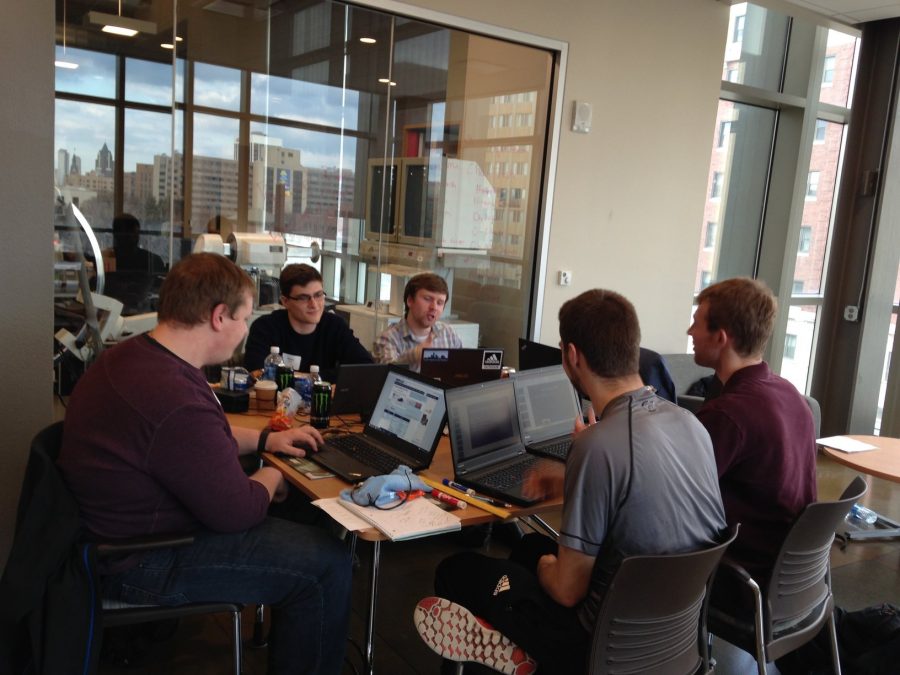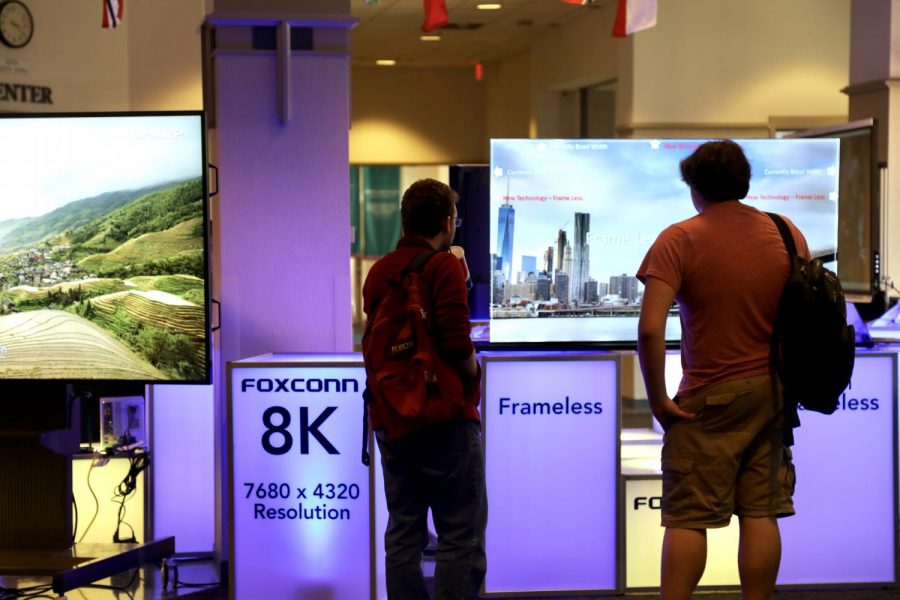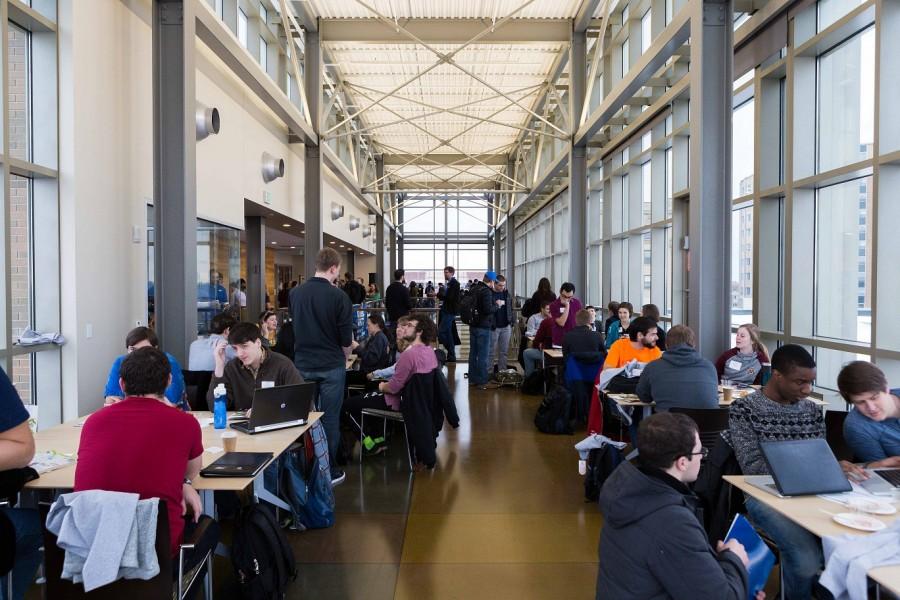One hundred sixty students competed to solve real-world engineering problems and develop presentations at Marquette’s third annual Hackathon.
This record number of participants was a significant increase compared to the previous two Hackathons, each of which had about 100 participants. Students worked in groups to troubleshoot challenges involved in improving the lives of the elderly.
The event was sponsored by Milwaukee company Direct Supply and held in Engineering Hall. Direct Supply provides healthcare equipment and other services to senior living communities. Company President and CEO Bob Hillis said students at Hackathon were working on industry problems.
“We are serving 21 million seniors in America who are aging,” Hillis said. “You get a crack today at changing the lives of people, and I’ll bet some ideas come out of here that really go the distance.”
Hackathon participants were given about 12 hours to develop their solutions, and prizes were presented to the top groups. The presentations involved challenges in healthcare innovation and data analysis. Direct Supply employees walked around to guide groups.
David Vitale, a senior in the College of Engineering, performed in his second Hackathon. He said that the event represents a unique experience compared to the school projects he usually works on.
“A lot of engineering classes can get boring, but this is a fun design competition,” Vitale said. “You get a lot of creative freedom, like someone that’s been an engineer for many years. It’s rewarding to start and finish something in one day.”
James Schroeder, a graduate student in the College of Engineering, said he participated to win the competition, and potentially network with industry professionals.
“We need to come up with an idea and make it marketable and sellable,” Schroeder said. “You have to think outside the box. It’s more about application than theoretical thinking.”
University President Michael Lovell addressed the crowd before the competition. Lovell said he sees Marquette’s partnership with Direct Supply as a framework for the university’s future collaborations.
“(Direct Supply) is such a great partner for us,” Lovell said. “When we think about how we want to move forward as an institution, we’re going to do it by working with others, particularly bringing hands-on, real-world experiences to our students.”
Lovell said the Hackathon is also an opportunity that can guide students in the future.
“To the students, obviously, you’re going to get a great experience,” he said. “When you think about how you’re going to give yourself the skills you need to be successful in the future, it’s doing activities like this where you’re working on real world problems. Most importantly, you’re going to be doing things that make a difference in the lives of others.”
Chris Procak, a senior in the College of Engineering, was part of the winning team for the data analysis challenge. The team was given information about several nursing facilities and the group had to determine which facility was performing best based on the information presented.
“Basically, we wanted to predict which facility would be five-star rated,” Procak said. “We worked on each facility’s data sets individually. We thought having different perspectives would increase our efficiency and chance of finding the facility that was working best.”
The winning team received a prize of $1,500 to be shared among the six group members. Procak said the group was extremely excited about their win. “There was a lot of yelling and jumping around,” he said. “We all went up as a big mob, we were pretty fired up.”





Cathy Rozewicz • Jan 25, 2017 at 6:19 pm
I thought this was a very nice article. But it was missing an important piece, the names of the people That were the winners.